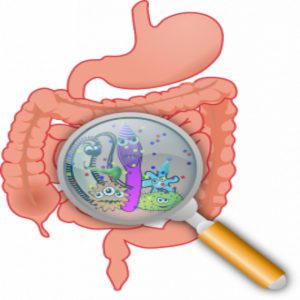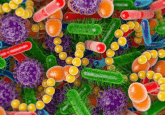Coffee: mobilizing the bowel and meddling with the microbiome

The supposed link between your morning cup of coffee and an accelerated mobilization of bowel movements has been tested in a rat model. The results show more than just the observed correlation between coffee and bowel movements…
It is a well-observed and yet little-studied truism that coffee accelerates one’s morning motions. A team of researchers from University of Texas (TX, USA), led by Xuan-Zheng Shi, has found that contrary to logical assumptions, caffeine is not the constituent responsible for coffee’s purgative properties and that the drink’s effects on the bowels are greater than those of a simple accelerant.
Speaking at Digestive Disease Week (CA, USA) Shi described how he set out to identify the source of coffee’s aperient function by treating a population of rats with differing concentrations of coffee over the course of 3 days. The research team also observed the effect of coffee on fecal matter when mixed in a petri dish. These experiments were repeated with caffeinated and decaffeinated coffee.
“Interestingly, these effects are caffeine-independent, because caffeine-free coffee had similar effects as regular coffee.”
Solutions of 1.5 % and 3% coffee combined with the fecal matter resulted in a decrease in microbial growth, increasing in severity in line with the increased concentrations. The same effect was observed in the feces of the rats that were fed coffee over 3 days and the results for both scenarios appeared independent of the presence of caffeine in the coffee.
-
How much coffee is too much?
-
Coffee: overcoming our natural defenses
-
When should you have your coffee?

When observing the effects of the coffee on muscle tissue of the lower intestines and colons, the researchers found that after exposure to coffee, the rats displayed increased contraction ability. This reaction was mirrored when isolated colon and small intestine muscle tissues were exposed directly to coffee in the lab. When discussing the impact of caffeine on this effect, Shi noted that “interestingly, these effects are caffeine-independent, because caffeine-free coffee had similar effects as regular coffee.”
The antimicrobial effect of the coffee needs to be studied to identify the demographics of microbes effected in order to identify if firmicutes (good bacteria) or enterobacteria (bad bacteria) are mostly stymied by coffee.
The active ingredients responsible for these muscular and microbial responses are yet to be identified and further study is required to identify whether coffee could be the source of therapeutic treatments for conditions such as post-operative constipation.





